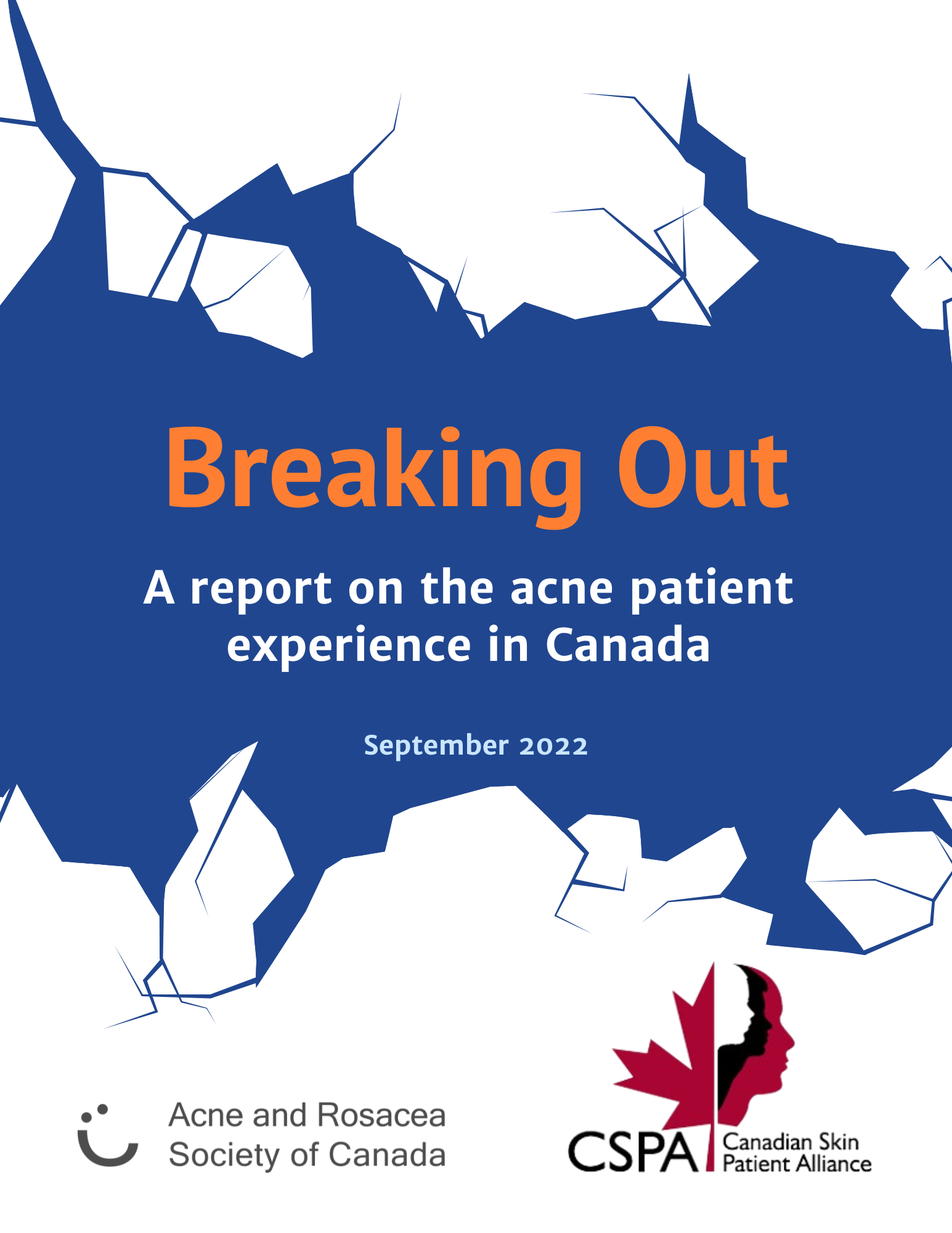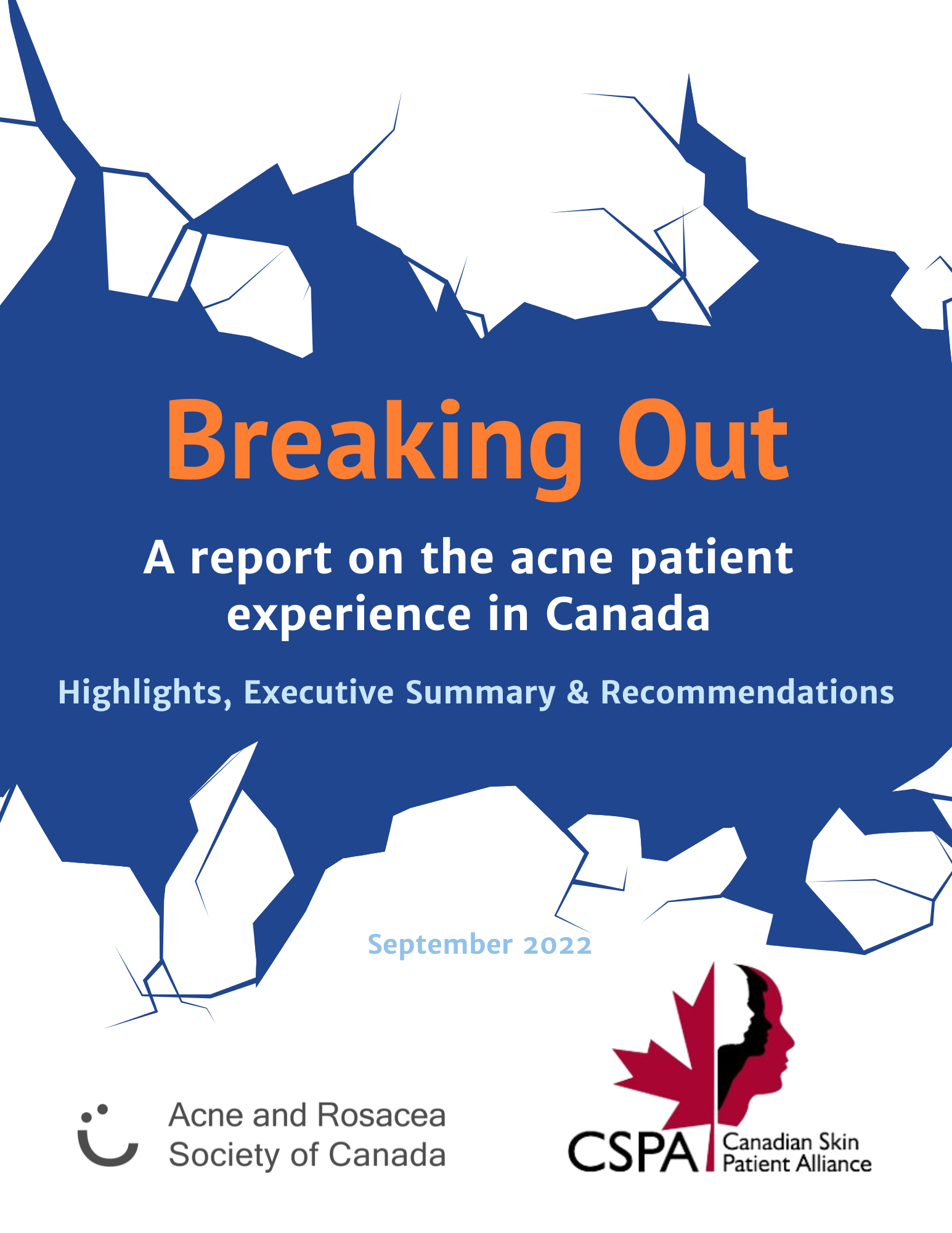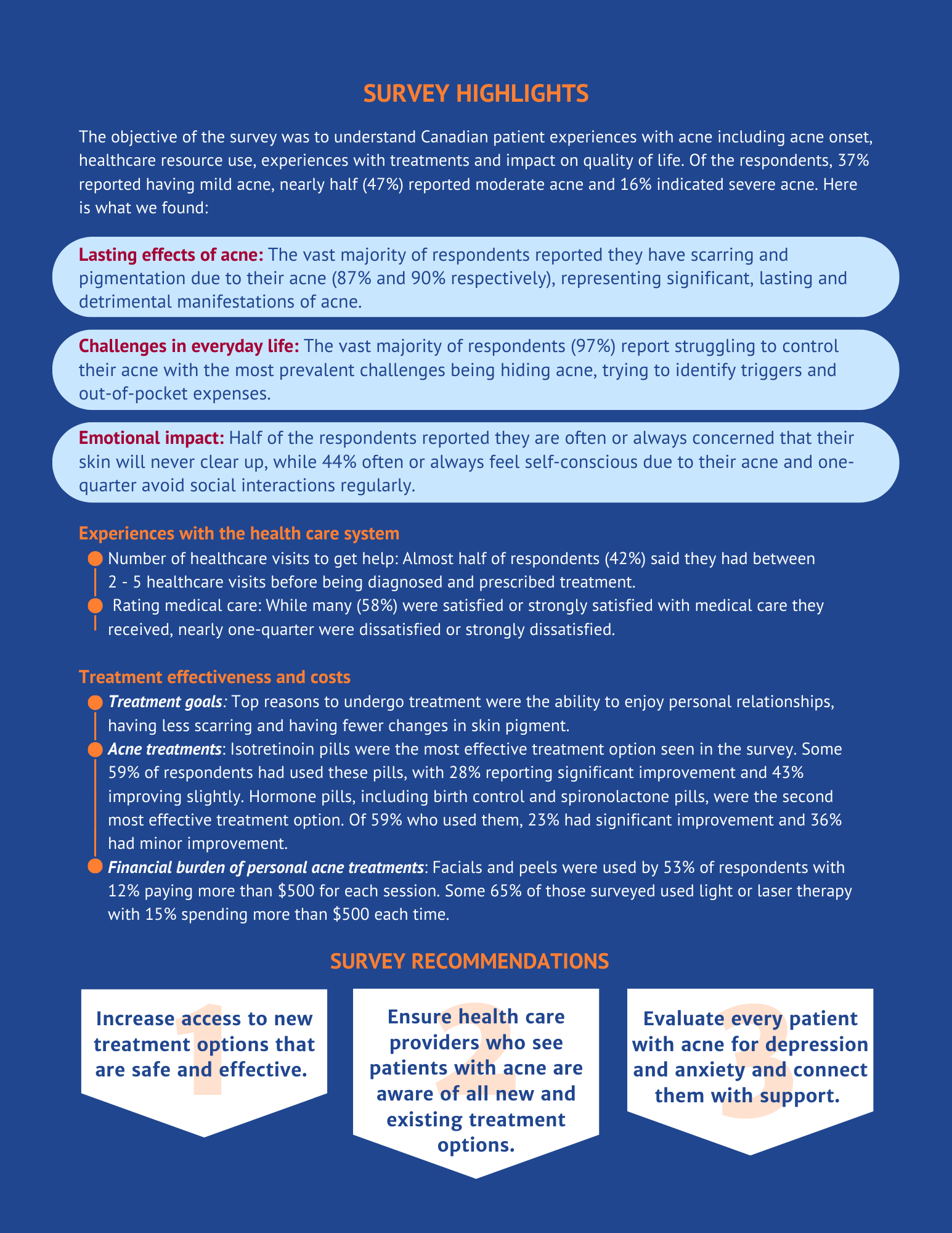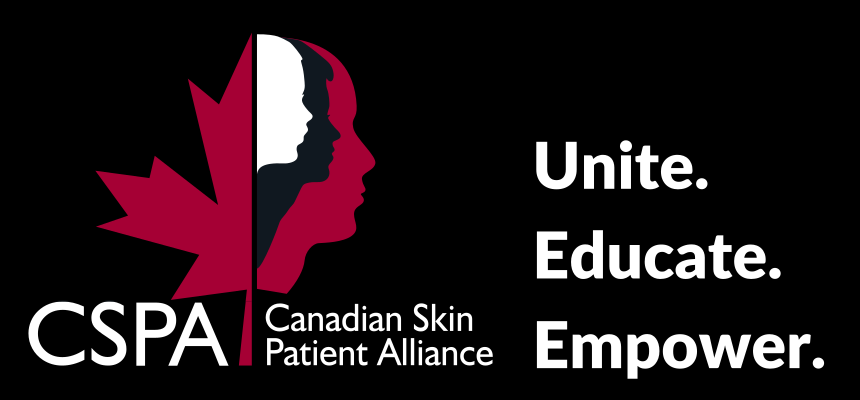Acne vulgaris (commonly known as acne) is a highly prevalent skin condition, caused by dead skin cells and the accumulation of sebum — an oil produced in the skin — blocking pore openings. For many of those with acne, the pimples and breakouts lead to more permanent complications including scarring and dark pigmentation changes.
As the eighth most common disease globally, acne typically affects adolescents and teenagers, although it can be persistent and extend into adulthood. Due to the very visible manifestations of acne, there are considerable psychosocial impacts. Individuals with acne often have a higher risk of anxiety and depression, and many avoid social interactions because of their acne.
Given the significant psychosocial burden of acne and the ever-changing treatment landscape, it is important to understand the health journey of individuals with acne and identify unmet needs. The Canadian Skin Patient Alliance (CSPA) and the Acne and Rosacea Society of Canada launched Breaking Out: A report on the acne patient experience, to contribute to the knowledge of the lived experiences of people in Canada with acne. Survey respondents were asked to share their experiences spanning from diagnosis to ongoing disease management, including severity, impact on quality of life and overall wellbeing, treatment effectiveness, and satisfaction with the health care system.
The findings outlined in this report uncover important patient needs and opportunities for improvement in the treatment and management of acne in Canada and can be used to inform research and policy directions.














